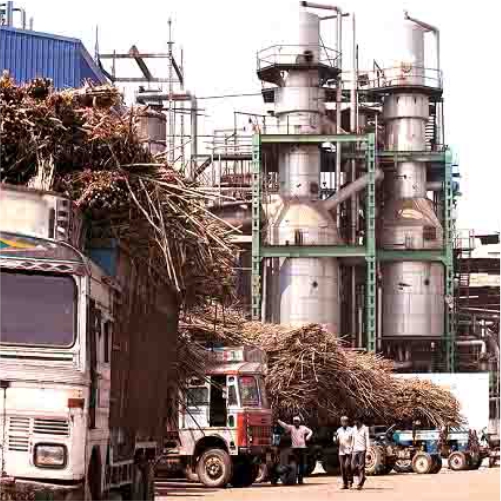An Indian consultancy firm is advocating for the Kenyan government and sugar millers to adopt bagasse-based electricity generation as a means of diversifying revenue streams and reduce financial challenges in the sugar industry.
The firm highlighted that while 18 registered sugar millers produce large amounts of bagasse daily, many are hesitant to use this biomass for power generation and export. It believes that harnessing this potential will also help meet the country’s growing power needs.
Shirish Karandikar, Chairman and Managing Director of JP Mukherji and Associates, stated that cogenerating power for export could generate up to Sh3.1 billion annually. The projection is based on the exportation of 40 megawatts of power and utilising bagasse supplied by three to four factories.
The consultancy suggested the creation of centralized Independent Power Plants by pooling bagasse from multiple factories, which could be managed by the government, sugar millers, or private investors, reported Kenyan newspaper Nation.
“For instance, three sugar factories could collectively provide 100 tonnes of bagasse per hour, generating 40 MW of electricity,” said Karandikar during a meeting with sugar millers and Kenya Sugar Board officials in Kisumu. “A centralized power plant could be established in regions like Kisumu by combining both government and private sugar factories,” he added.
“Using bagasse for green power generation could significantly reduce Kenya’s dependence on power imports and promote self-sufficiency in electricity production,” Karandikar noted. He also emphasized that sugar industries in rural areas could spur socio-economic growth, create jobs, and foster industrialization in surrounding communities.
However, substantial capital investment is needed for sugar companies to adopt power export initiatives, including the installation of high-pressure boilers and additional turbine capacity. Many government-owned factories still rely on outdated equipment, which requires modernization, particularly focusing on enhancing steam efficiency.
Some private companies, like Kwale International Sugar Company Limited (Kiscol), have already invested in advanced equipment, positioning them well for renewable energy projects. Kiscol is considered one of Kenya’s most modern sugar plants and serves as a model for the successful implementation of green energy initiatives.
Kenya Sugar Millers Association CEO, Stephen Ligawa, pointed out that while progress has been made, such as the construction of substations near Kibos Sugar, more efforts are needed to streamline transmission systems and PPA negotiations.
For detailed information and further insights, please refer to Chinimandi.com, which provides news about the Sugar and Allied Sectors












